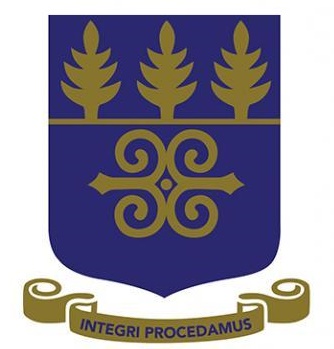LNGS 406 3 Credit Hours
LANGUAGE AND POLITICS
This information is for second semester 2017/2018 academic year
Teacher responsible
Dr. Mercy Bobuafor
Availability
This course is available open to all visiting students but only as a second semester course.
Course Content
This course has been designed to deal with the interface between language and politics. It aims at providing advanced knowledge of the discourse that relates to politics. It covers language negotiation and maintenance of power relations in traditional and contemporary society. At the end of the course, students should be able to understand discourse in political persuasion, oratory, public speaking, indirection and language of diplomacy. We will discuss how language is employed in slogans and propaganda manifestoes. Students should be able to apply the theories in Political Discourse Analysis. Students should also understand the language of promises and commissures in politics that bind politicians to actions.
Teaching
Monday; 11.30am-1.20pm
Classes will be a combination of lectures, discussions and/or group presentations.
Formative Coursework
Class Attendance
§ Students should be very regular in class and those who absent themselves from class for two consecutive times would have questions to answer.
§ Class exercises would be given unannounced and that is why punctuality in class is essential.
§ Preparation before class is essential and students are advised to read the important suggested readings and materials on each topic before lectures.
§ Students will have to participate fully in class and will be asked to answer certain questions or contribute to discussions.
§ Various types of assignment would be given as class work or homework.
Group Projects / Class Presentations
You will be put into groups and each group will be assigned a topic to research on. Your projects will be presented in class orally.
Indicative reading
Agyekum, K. (2013) Language and Politics. Institute of Continuing and Distance Education, UG. Legon
Agyekum, K. (2010) ‘Language of Political Campaigns. Forthcoming in LJH
Agyekum, K. (2010). Ghanaian radio and the Akan Language: Unplanned language planning and development. Issues in Political Discourse Analysis 3.2. 141-161
Agyekum K. (2009). ‘Language shift: A Case Study of Ghana.’ Sociolinguistics Studies 3(3): 381-403
Agyekum, K. (2004). Aspects of persuasion in Akan communication.’ International Journal of Language and Communication RASK Vol. 21 October 2004 pp 63-96.
Agyekum, K. (2004). Invective language in contemporary Ghanaian politics. Journal of Language and Politics. Vol. 3:2: 345-375.
Beard, A. (2000). The language of Politics. London: Routledge.
Blommaert, J. (1997). Language and politics, language politics and political linguistics. In Jan Blommaert and Chris Bulcaen(eds.) Political Lingustics: Belgian Journal of Linguistics 11-1997, pg.1-10
Chilton, P. A. (1998). Politics and Language. In L. J. Mey (ed.) The Concise encyclopedia of pragmatics. Pp. 668-695. Amsterdam. Elsevier.
Chilton P.A. (2010). Political terminology. In Ruth Wodak and Veronical Koller (eds.) Handbook of communication in the public sphere. Pp. 3212-3214 Berlin: De Gruyter Mouton.
Davies, A. (1994). Politicised language.’ In Asher R.E. and Simpson. J.M,.Y. (eds.) The Encyclopedia of language and linguistics. Vol. 6 pp. 3212-3214. Oxford: Pergamon Press.
Holly, Werner (1989). Credibility and political language. In Ruth Wodak (ed.) Language, power and ideology. Pp. 115-135 Amsterdam. John Benjamins
Jaffe, A (2009). Linguistic decolonialisation. in J. L. Mey (ed). The concise encyclopedia of pragmatics. 2nd Edition Pp. 534-535 Amsterdam. Elsevier.
Jones, J. and Wareing, S. (1999). Language and politics. In Linda Thomas and Shan Wareing (eds.) Language, society and power. London: Routledge
Semino, E. (2008). Metaphor in Discourse. Cambridge: Cambridge University Press.
Scorning, K. (1989). Some remarks on linguistic strategies of persuasion. In Ruth Wodak (ed.) Language, power and ideology. Pp. 95-113 Amsterdam: John Benjamins
Wodak, R. (1989). Language, power and ideology. Amsterdam: John Benjamins
Evaluation and Grading
Evaluation is based on 30% Continuous Assessment and 70% final examination (totalling 100%). Credit will be given to students who draw on practical examples from the various newspapers, political speeches and media political talks and discussions in their presentations and answers.
Grading Scale:
|
Letter grade |
Marks |
Grade point |
|
A |
80-100 |
4.0 |
|
B+ |
75-79 |
3.5 |
|
B |
70-74 |
3.0 |
|
C+ |
65-69 |
2.5 |
|
C |
60-64 |
2.0 |
|
D+ |
55-59 |
1.5 |
|
D |
50-54 |
1.0 |
|
E |
45-49 |
0.5 |
|
F |
0-44 |
0.0 |

